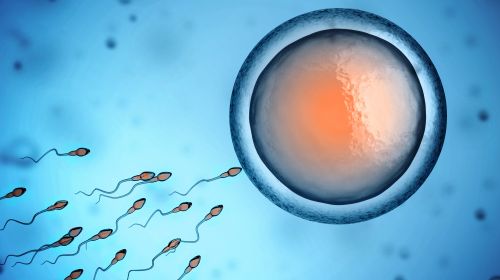Mothers usually describe the weeks after birth as a very happy time. But the truth is often very different: Many women are affected by postpartum depression. Treatment is possible and important.
- If the baby blues grows into a puerperal depression, quick action is required.
- © iStock.com/monkeybusinessimages
The low mood in the puerperium (baby blues) is much more widespread than expected: Between 50 and 80 percent of all women have so-called "howling days" after birth, and about 10 to 15 percent develop postpartum depression, also known as postpartum depression, which requires treatment.
But because of enormous feelings of shame and guilt, many women don't talk about it. After all, expectant and new mothers everywhere are given the image that they should experience pure happiness with their baby at every moment. Women who develop postpartum depression often prevent this idea from getting psychological help in good time. They often ascribe to themselves that they have failed and are not a good mother.
Overview of article content:
Typical symptoms of postpartum depression
Postnatal crises are far more common than expected. They range from simple baby blues about the puerperal depression requiring treatment to severe postpartum psychosis. Typical signs of puerperal depression include:
- anxiety
- sensitivity
- difficulty concentrating
- Fatigue and exhaustion
- irritability
- Sleeplessness and restlessness
- mood swings
- Sadness and frequent crying
The symptoms of baby blues peak about five days after birth. In most cases, however, it is a temporary mood depression, which disappears after a short time and is considered normal and relatively harmless.
If, however, the bad mood persists for two weeks and thus for an unusually long time, postpartum depression can develop into a permanent depression.
Causes and risk factors for depression after childbirth
The exact causes and triggers of the disease have not yet been fully clarified. It is believed that both physical, psychological and social factors are involved. The enormous change in hormones after childbirth, a complicated course of pregnancy and a traumatic birth or problems with breastfeeding can be reasons to lose mental balance. A lack of support from partners, doctors and nursing staff, as well as an understanding of the role of women as perfect mothers, can make the ideal baby world falter.
-

What can I eat, what should I avoid? Is exercise dangerous or healthy during pregnancy?
to the knowledge test
According to experts, women who have already suffered from depression or who have already had a pregnancy depression have a higher risk of becoming ill. Depression in the family can also be a risk factor. It is not uncommon for a mental illness to appear for the first time in the puerperium.
Feelings of guilt and shame dominate postpartum depression
Postpartum postpartum depression is a mild to moderate depression that usually occurs ten to twelve weeks after delivery. A gradual development of symptoms is typical of postpartum depression. Feelings of guilt and shame are often in the foreground because the woman suspects that she will fail as a mother. In addition to the serious psychological strain on women, negative effects on partnership and children can also be observed. Mental illnesses of the mother have significant and far-reaching consequences especially on the development of the child.
Postpartum psychosis as the greatest postnatal crisis
The most severe form of postnatal crisis is postpartum psychosis. It occurs primarily in the first two weeks after childbirth, but can also develop from postpartum depression. The association "Schatten & Licht" states their frequency with up to three out of 1,000 mothers. The symptoms vary and are sometimes very massive. They can range from anxiety to indifference to delusions.
Immediate treatment for severe depression
Often, the three clinical pictures of baby blues, postpartum depression and postpartum psychosis cannot be clearly distinguished because there are smooth transitions. The treatment of the affected mothers differs individually and depends on the course of their postnatal crisis.
In any case, women should entrust themselves to the supervising midwife. In lighter cases, it may be enough to limit yourself to self-help. In the case of moderate postpartum depression, on the other hand, self-help can be used as a companion, but it is often not enough, so professional help is required. In the event of severe postpartum depression or even psychosis, immediate professional help is ultimately necessary.
Depending on the clinical picture and personal preference, various therapy options are available, which can be used alone or in combination. These include psychotherapy, antidepressants, herbal supplements such as St. John's wort or hormonal therapy. In individual cases, the doctor will consider which treatment of puerperal depression is useful and which medication can be taken safely while breastfeeding.



